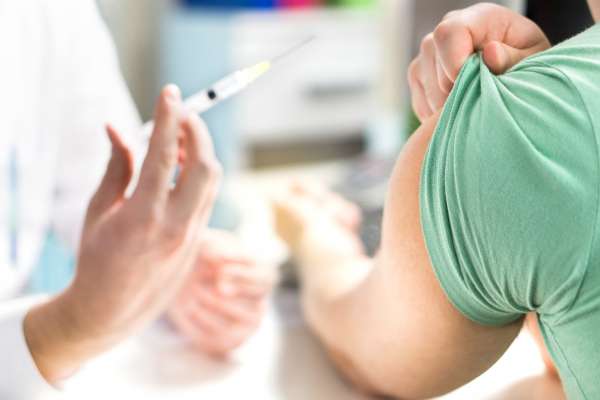Researchers testing new treatments and vaccines amid a disease outbreak, such as the COVID-19 pandemic, face a number of challenges. Unpredictability in size, geographic location and the duration of the outbreak can make it difficult for scientists to determine if a drug actually works.
An international team of infectious disease experts, including Natalie Dean, Ph.D., and Ira Longini, Ph.D., biostatistics faculty in the University of Florida College of Public Health and Health Professions and the UF College of Medicine, propose a core protocol for such trials in a commentary published today in The New England Journal of Medicine. Dean and Longini, also members of UF’s Emerging Pathogens Institute, played an integral role in the design and analysis of trials testing the effectiveness of the new Ebola vaccine, rVSV-ZEBOV.
Lead author Dean further explains the core protocol approach.
What is the major challenge for conducting clinical trials during an outbreak?
The key challenge is that outbreaks are unpredictable. We don’t know in advance where they will emerge, where they will spread and how long they will last. This makes it very hard to plan clinical trials. Imagine vaccinating tens of thousands of people. If there is no outbreak in this population, we won’t be able to tell if the vaccine prevents infection. Alternatively, trials may start but then have to stop early because the outbreak ended before the full sample size had been enrolled. As a result, we may be in a state of uncertainty about whether the product worked.
What is the core protocol you propose for trials conducted during outbreaks?
The key principle of the core protocol is that the best way to answer these important health questions is to accumulate information across outbreaks. A trial implemented in a single outbreak may not be large enough to fully answer the question of whether a vaccine or treatment is safe and effective. As a result, we should include a plan for trials to extend across outbreaks. A trial is not necessarily over because an outbreak wanes, and we want to avoid the release of inconclusive information that can make it difficult to later determine if the product is truly effective. Furthermore, in pandemics, where outbreaks are occurring in many different regions simultaneously, we are better served by having a large unified trial contributing data to achieve the same goal than having many smaller trials, each of which may be too small.
What are the steps to license a new vaccine or treatment?
The first steps are preclinical studies, including laboratory testing and studies in animals. Then, investigational vaccines or treatments proceed through a series of clinical trials. The earliest trials are small and first assess whether the product appears to be safe in humans. The largest trials include many participants and assess whether the product works as intended. For example, does a vaccine prevent infection and disease? Does a treatment reduce mortality in ill patients? These large trials directly inform whether a product should be approved for use.
Researchers have already launched clinical trials for potential COVID-19 treatments and vaccines. What should we be watching for in the coming weeks and months?
The World Health Organization has strongly advocated for our core protocol approach during the COVID-19 pandemic. The WHO has recently launched the SOLIDARITY trial of COVID-19 therapeutics, which is being implemented in many countries worldwide, all of which are contributing data to rapidly answer questions about whether the products work. Our paper provides the scientific justification for this approach. With likely thousands of patients being enrolled over the coming weeks and months, we will be best able to evaluate whether the treatments work, and in which subgroups, i.e., those who are moderately ill or severely ill. This is important because, while over 80 treatment clinical trials were launched in China early in the epidemic, so far none have been large enough to detect the types of moderate effects on clinical outcomes that these drugs tend to have. (Smaller trials can only detect large effects.) Our group is working on similar multicountry trial strategies for vaccines once these are ready to be tested in large clinical trials.
This article was originally adapted from UF Health News.

